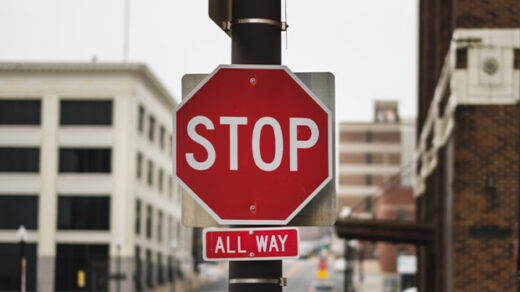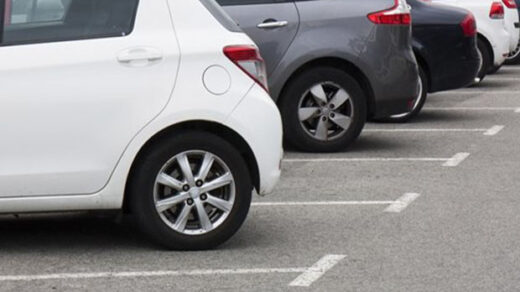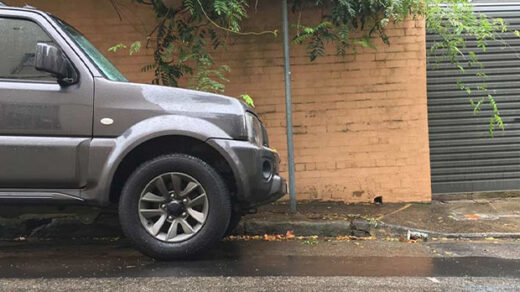The most crucial thing you can do to take care of your car, according to common wisdom, is to change the oil. Even so, a lot of car owners put off doing it, and doing so can have disastrous consequences.
If you believe your car is leaking oil while it is parked, you need to look into the problem. An oil leak requires immediate attention because it is serious.
By the time this article is finished, you will understand the signs, and causes of the oil leak and how to prevent them in the future!
Read Next: How Long Can I Leave My Car Running While Parked?
Table of Contents
Signs Of Oil Leaks
If oil is dripping from your engine, that is one sign that it has been far too long since your last oil change. After your car has been parked for some time, you may notice a puddle of greasy-looking brown liquid under it. This is one of the most common signs of an oil leak. (In contrast, if the liquid is pink, it is transmission fluid; if it is green or orange, it is coolant.)
But many modern cars have shielding underneath, which will probably catch the oil before it touches the ground. That may conceal a serious oil leak. In this instance, a low oil level indicator will serve as your leakage indicator.
Another fairly reliable indication of leakage is an oil-covered engine. Check the fluid levels in your car by periodically opening the hood. If the oil is dripping or seeping in multiple places, you will be able to detect it. Last but not least, leaking oil can come into contact with hot engine surfaces, causing it to burn and emit an unpleasant smell.
Causes Of Oil Leaking When Car Parked
Here are some of the reasons why your car is leaking oil when parked.
1. Broken Engine Block Seals Or Blown Head Gasket
When parked, an oil leak from the car could be caused by a blown head gasket or engine block seal.
If oil is dripping from your car when it is parked, it may be due to an older car with a blown head gasket.
It’s possible that the rubber components meant to seal your engine block over time have started to decompose. Oil leakage from the top of the engine block could result from this.
Additionally, if you have insufficient coolant in your vehicle, the engine may overheat, and an overheated engine may cause the cylinder head to shift and lose its shape, which could cause an oil leak from the head gasket.
Aside from that, if your car doesn’t have enough antifreeze to stop the water in the system from freezing due to the colder temperatures, your engine could freeze and crack if you live in an area with extremely low temperatures. This can result in your car leaking oil when parked
2. Damage To The Oil Pan Or The Oil Filter
Your car may leak oil when parked if your oil filter is damaged because the oil may leak as it passes through the filter and into the engine.
When your car is parked, oil leaks may also occur if the oil filter itself is not the problem but rather the pan that houses it.
Driving on lower-elevation roads or in areas with lots of potholes can cause the oil pan to hit the road with a lot of force, which can cause damage.
This damage might lead to a sudden leak that starts while the car is parked and gets worse over time.
3. Not Properly Positioned Oil Pan Plug
If your car leaks oil when it is parked, the oil pan plug may not be installed properly.
Threads that are stripped, improperly installed, or not fully tightened could cause damage to the oil pan plug. The oil pan plug can be swapped out for a rubber plug as an easy and affordable temporary solution to this issue.
However, since a steel plug will last longer than a rubber plug, a permanent fix usually entails replacing the plug with one that is precisely the right size for your vehicle.
4. Other Damaged Seals Or Gaskets
Another potential cause of an oil leak from a parked car is a broken oil gasket or seal.
The engine block and cylinder head will become warm as a result of the heat produced while driving when your car is stopped and parked in a garage.
Seals and gaskets are put under pressure when metal components, which expand when heated, are used. Oil leaks are prevented by an engine’s gaskets and seals.
However, as the engine cools, the metals shrink and leave gaps between the seals and the metal parts. Since there isn’t enough pressure to prevent the oil from leaking, these gaps may cause an oil leak.
You can find out if the issue is brought on by a faulty oil gasket, a leaky seal, or a worn-out valve seal by visiting an auto repair facility and speaking with a mechanic there.
How To Deal With An Oil Leak?
An oil leak must be located before it can be fixed. Oil leaks can be fixed with a variety of products available on the market, but taking your car to a local service center is the best way to guarantee the problem is fixed.
For your engine, it’s essential to determine the root of the leak. Not all oil leaks, though, are obvious. In order to avoid this, you must regularly check the oil level in your engine between oil changes.
- Note the levels to ascertain how much oil your engine may be losing.
- In order to give the oil time to settle back into the pan, check your oil after the engine has been off for at least 30 minutes.
- Remove the dipstick, clean it with a fresh rag, and reinstall it while the engine is off.
- Reading the level indicator requires another removal of the stick. Full or just a little below full levels are acceptable. Anything less than that will suggest that a top-off is required. A trusted technician should be called right away if the level is consistently low as this could be a sign of a serious issue.
Can I Drive When Oil Leaking?
When these factors are analyzed, it can be decided whether the car is safe to drive and why it leaks oil when it is parked.
The location and size of the leak are the two most important factors in determining whether you can drive or not when you have an oil leak. It’s important to know how big the leak is because the bigger it is, the more likely it is that oil will leak out and damage your car.
The larger the leak, the faster the oil will leave the vehicle through it, increasing the amount of oil that will be lost. The location of the leak is critical in determining whether you can operate your vehicle. Oil leakage into the exhaust manifold could occur if you have a cover gasket leak.
The heat from the exhaust could result in smoke and even start a fire if this happens. If you find leaks in the timing cover, the oil may seep into the timing belt, damaging it and causing a mess inside the car.
Rear main seal leaks are the best to have if you discover a leak because the engine is unaffected and no other parts of your car will be harmed.
Your daily mileage plays a role in the likelihood that you’ll experience an oil leak while on the road.
There is less chance of the oil level dropping to the point where it becomes dangerous if you are only traveling short distances, typically no more than 10 miles.
Your car’s oil level will drop drastically due to the leak if you drive more than 10 miles or are stuck in traffic for a long time on the way to work, making it extremely dangerous to operate.
Furthermore, as your engine warms up, oil leaks may become more dangerous. Oil flows more quickly as a result of the temperature rise, hastening the occurrence of oil leaks.
It’s more likely that your engine will become hotter and develop a serious leak if you drive far or for a long time.
The amount of oil in your engine can also have an impact on how well your car runs when it has an oil leak. If you have a car that can hold a lot of oil, one drop won’t have a big effect on the oil level in your car.
The oil level in your car will be significantly impacted if you drive a vehicle with a smaller oil capacity and there are a few drops of oil leaking from your car.
The likelihood that you are operating a vehicle with an oil leak is significantly influenced by the factors we’ve covered.
It is not advisable to ignore an oil leak because, if you do, it might soon result in more serious issues. If you discover an oil leak, you’ll need to pay money to fix it so that oil won’t leak out while you park your car.
What Is The Cost Of Oil Leak Repair?
Depending on what is causing the leak, how much damage it has caused, how long it will take to fix, and the make and model of your car, oil leak repair typically ranges from $150 to $1200.
It is obvious that this is a high cost, and you’ll need to speak with a mechanic to get a ballpark figure. Your payment will depend on how much damage this leak has caused to your car, with lower damage costing less to fix.
It will cost about $100 to repair the part if the leak is caused by a broken oil filter or a filler cap that is damaged. However, you should expect to pay up to $1,000 to replace your oil pan if it is damaged.
It will cost a lot of money and labor to replace a head gasket that has been damaged or degraded; the cost is typically between $2,000 and $4,000.
Sadly, the cost will continue to rise after this. You must first decide whether the cracked engine block can be repaired if your engine block is cracked.
Usually, between $2,500 and $3,500 is needed to fix an engine block that has cracked. After that, the engine needs to be replaced. A standard engine replacement will cost between $4,000 and $5,000, and a performance-oriented engine replacement could cost up to $10,000.
How To Prevent Oil Leak In Future?
To save money on oil leaks that could have been prevented, follow the advice below.
- Even if it has nothing to do with oil, don’t ignore any issues your car may be experiencing. This is due to the interdependence of the components in your car. The others, especially the closest ones, will be impacted by the fault of one part. By putting additional strain on other components, procrastination only drives up the cost of repairs by causing more of them to become defective.
- Replace the oil on a regular basis. An auto repair shop’s mechanic will have the chance to inspect the engine and any other parts that use oil during routine oil changes. The expert will make sure they are functioning properly.
- Plan your regular car maintenance.
- If a small leak begins, outfit the car with a leak-stopping additive. Motor oil with leak-suppressing qualities is also available.
- Every few years, repair damaged auto parts or replace them with new ones.
When Should I Replace My Oil?
Due to its dark color, oil can be difficult to tell when it needs to be changed. The best course of action is to check the owner’s manual of your car to see what the manufacturer advises: each model will have its own recommendation and following it will elongate your car’s lifespan. Beyond what your manufacturer advises, there is no need to have it changed.
Some drivers change their oil every six months, but your mileage counter will provide a more reliable estimate. Some newer cars can get up to 10,000 miles out of their oil before they need to change it, whereas older models will need an oil change approximately every 3,500 miles.
When it comes to oil changes, always abide by the manufacturer’s recommendations.
The Bottom Line
As previously mentioned, if your car is leaking oil while parked, you should always carefully inspect the fluid. Any oil leak needs to be fixed as soon as it is discovered, regardless of the cause.



